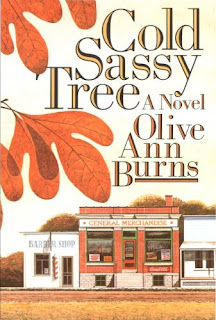Books and Beer Club doesn't meet in December, so at the November meeting, the group picks a LONG classic to be discussed in January. I wish I could recall the suggestions that were tossed out.
Sister Carrie by Theodore Dreiser sounded the most interesting to me, mostly because Carrie ends up in New York City. The woman who recommended the book absolutely loved it. The reviews online echoed that.
I definitely did not love the book, but I didn't hate it either. It's the story of Carrie (called Sister Carrie not because she's a nun but because that's what her family at home called her growing up) who leaves her small town in Indiana for the big city of Chicago. Her plan is to live with her sister and get a job to support herself and then kind of wait for life to happen.
She meets a guy, Charles Drouet, on the train to Chicago. He wants to meet her once she's settled and she really isn't comfortable with him coming to her sister's house. Until... she gets sick and loses her lousy job and needs help. They live together apparently as man and wife.
Drouet introduces her to his friend Hurstwood, a married man with a demanding wife and two older children. Carrie and Drouet are attracted to each other. Hurstwood mistakenly thinks that Carrie is married to Drouet and Carrie mistakenly thinks that Hurstwood is single.
The story kind of bumbles along, much of it descriptions of Carrie's life with the two men. I guess that would make this classic novel a character study. I was intrigued by lines that could have just as easily been written today as over 100 years ago. Here's one example, noteworthy as we watch the demise, redefinition, and repurposing of department stores and shopping malls all across the country.
The nature of these vast retail combinations, should they ever permanently disappear, will form an interesting chapter in the commercial history of our nation.
They were along the line of the most effective retail organization, with hundreds of stores coordinated into one and laid out upon the most imposing and economic basis. They were handsome, bustling, successful affairs, with a host of clerks and a swarm of patrons.
What I've found exceptionally interesting is reading the commentary on the novel in an attempt to figure out why I didn't love the book. Those are riveting and lead me to believe that our book club discussion in another few weeks will be as well.
Just to keep this complete, here's the line I took offense at. I mean, really?
There was another fellow there, representing Burnstein, a regular hook-nosed sheeny, but he wasn’t in it.



.jpg)


